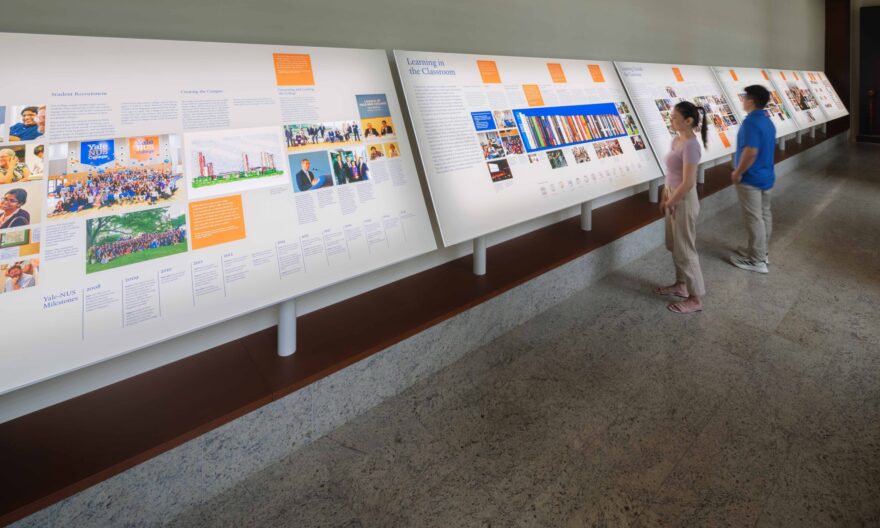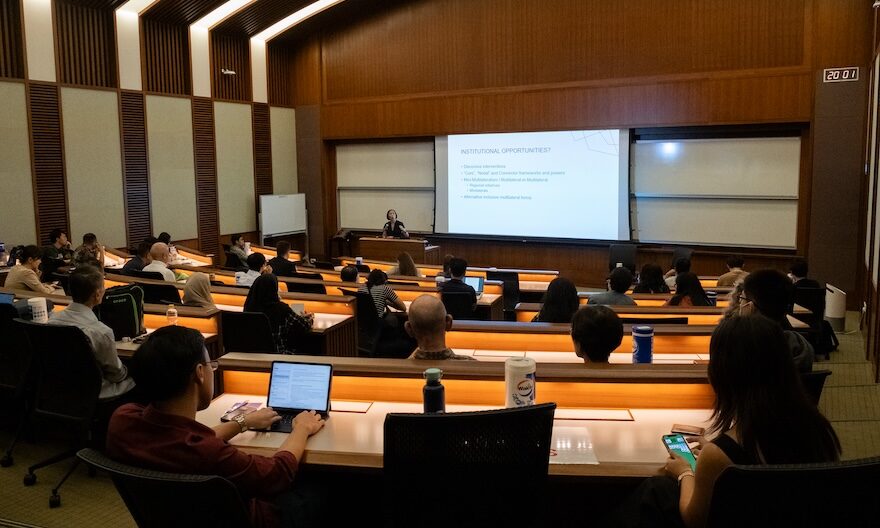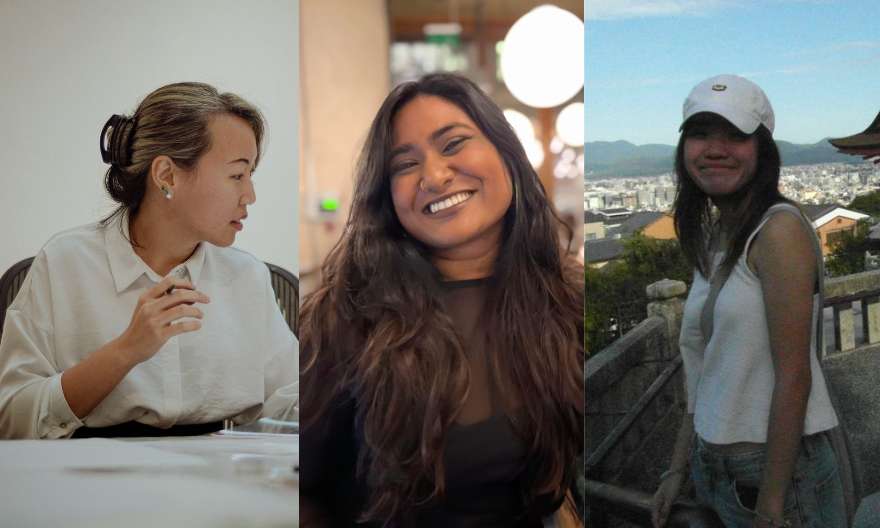New Haven Faculty Director Philip Gorski aims to strengthen ties between Yale-NUS and Yale
One of Yale-NUS College’s key strengths is its foundation as a unique partnership between two renowned institutions – Yale University and the National University of Singapore (NUS). Drawing on the resources of its parent institutions, the College benefits from opportunities such as overseas exchange programmes and visiting faculty who teach courses at Yale-NUS, broadening the range of offerings available to Yale-NUS students.
A key part of Yale-NUS’s partnership with Yale is the College’s New Haven office, which facilitates ongoing programming and continued institutional collaboration since the College was founded in early 2011.
The office initially provided the support and know-how to develop several key administrative systems of Yale-NUS, including admissions and financial aid, recruitment of leadership and faculty, and the creation of institutional policies and procedures. It now focuses on initiatives like facilitating mutual visits between the campuses and supporting the Yale-NUS Governing Board.
Beginning 1 July 2020, the New Haven office will have a new faculty director: Professor Philip Gorski, a comparative-historical sociologist at Yale. Prof Gorski currently serves as chair of Yale President Peter Salovey’s Yale-NUS College Advisory Committee, and previously also consulted on the design of the Yale-NUS common curriculum and served on faculty hiring committees.
“I am strongly committed to the College’s vision to be a truly global form of liberal arts education and want it to succeed and become a model,” he said. “I want to continue to strengthen ties between Yale and Yale-NUS, and especially to encourage more Yale students and faculty to take advantage of these connections in various ways.”
Prof Gorski is no stranger to Yale-NUS, having taught semester-long courses at the College in 2015 and 2018. His personal experience left him with a positive impression – not only were the students engaged and incisive, the multicultural milieu of Singapore meant that students often had first-hand contact with the material taught in class.
“Teaching sociology of religion to a group of students that had direct knowledge of all of the major ‘world religions’ — and some minor ones, too — was amazing!” he said.
Prof Gorski takes over the reins from Ms Kel Ginsberg, the incumbent director of the New Haven office. Ms Ginsberg will stay on to facilitate the handover to Prof Gorski before retiring at the end of August.
“On behalf of Yale-NUS College, I would like to extend a warm welcome to Professor Philip Gorski, a good friend of the College who has taught classes here and played a key advisory and mentorship role for faculty. I would also like to express my deep gratitude to Ms Kel Ginsberg for her many contributions over the years. These include fostering collaborations between Yale and Yale-NUS, increasing awareness of the College’s goals at Yale, and facilitating Yale faculty participation at the College. I wish her a happy retirement, and look forward to working with Prof Gorski to continue strengthening our collaborations with Yale,” said Professor Tan Tai Yong, President of Yale-NUS College.
Looking to the future, Prof Gorski acknowledges the challenges caused by the current coronavirus pandemic, yet also looks beyond them to the opportunities in store. He plans to expand the flow of mutual visits between New Haven and Singapore. While currently there are many Yale-NUS students visiting Yale and Yale faculty teaching courses in Singapore, the converse is not necessarily the case – something Prof Gorski hopes to remedy.
“To that end, I will try to build greater awareness of Yale-NUS amongst Yale undergraduates and to create more opportunities for Yale-NUS faculty to plug into the intellectual community in New Haven. I have already begun exploring various mechanisms to accomplish these goals,” he said.




